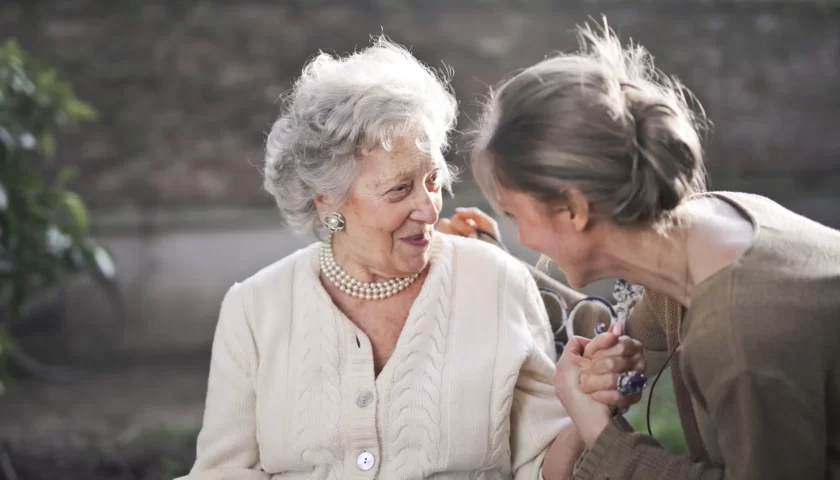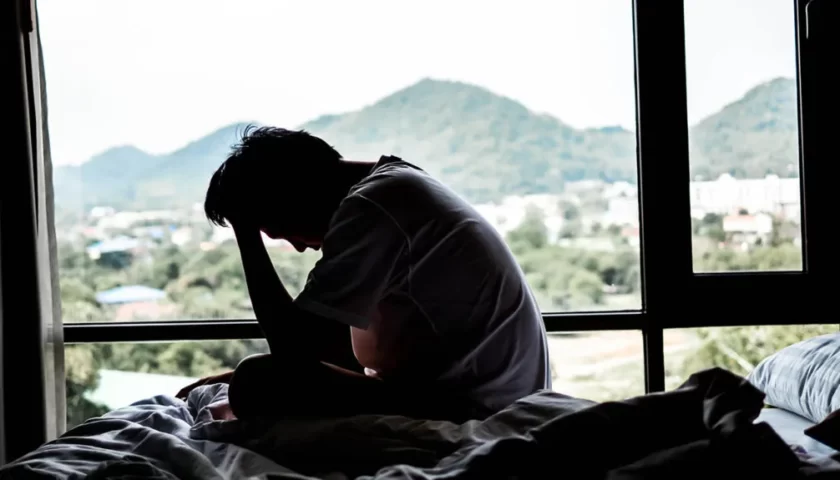Information
Key Signs It May Be Time For A Senior Care Facility

As your loved one ages, sending them to a senior care facility may seem daunting.
After all, you want what’s best for them and deserve peace of mind knowing they are safe. It can be challenging to realize when it is time for extra assistance from a senior care home –
especially if there has been no talk between yourself and your precious family member about
their plans!
However, recognizing any potential red flags or changes at home may help you come to terms
with the idea before it becomes an urgent need.
Some key signs indicate that now might be the time to look into senior care options.

Table of Contents
Social Isolation And Loneliness
As elderly people age, their mobility and independence tend to decline, significantly impacting
their social life. Many golden agers experience isolation and loneliness — especially if they live alone or do not have a robust support system.
They may have lost friends, spouses, or family members and may face difficulties remaining
connected to the world around them.
As a caregiver, it is essential to watch out for behavioral changes, showing that they may have
become withdrawn or sad.
Recognizing these pointers can help you determine whether finding an establishment that can
assist is the best action.
Reduced Mobility And Safety Issues
Reduced movement is one of the significant complaints among most elders, making it difficult
for them to perform daily activities independently or safely. Some older people often experience accidents, such as falls or slips.
While such accidents may lead to minor bruises or scratches in some cases, they can result in
long-term wellness conditions like hip fractures, head injuries, or even death.
Suppose you witness reduced vigor or movement, such as difficulty walking or getting up. In
that case, it is crucial to consider the security of your loved one’s living environment and ensure that it is conducive to their ongoing needs and demands.
An Increasingly Accumulating Pile Of Bills
If your relative is having difficulty keeping up with their financial obligations or is not paying their bills on time, this can mean that they need to change to an assisted living environment.
This symptom could signify difficulty managing their finances, making it challenging to run their household efficiently.
Here are a few examples that can suggest their inability to keep up with their financial and
economic priorities:
• Unopened mail
• Collection letters
• Past due notices
• Late payment fees
• Unpaid utility bills.
Take your time and investigate whether this could happen in their homes and if so – contemplate the shift to an environment where help is offered.
Depression And Erratic, Sudden Mood Swings

Sudden variations in mood or cognitive tendencies should not be dismissed. They may indicate
that the person is in constant pain and suffering or is moving toward depression.
This evidence can imply a change in their cognitive function, either due to medication or a
degenerative issues such as Alzheimer’s.
Here are a few examples of mood changes to look out for:
• Sudden aggression and angry outbursts
• Uncharacteristic irritability
• Sudden mood swings
• Depression
• Social withdrawal.
If your loved one shows hints of anger, depression, or social withdrawal, they might need
emotional and psychological attention – the attention they can only receive from skilled
professionals.
You’re Noticing Increased Forgetfulness
Forgetfulness is often a common occurrence among countless individuals as they get older.
Still, when it becomes frequent and impacts their welfare or well-being, it may lean towards a
more severe problem like dementia or Alzheimer’s.
Aged individuals sometimes forget to turn off appliances, lock their doors, or even eat, putting
their medical wellness and sometimes their lives at risk.
If you notice your older family member experiencing frequent memory lapses, it may be time to seek the assistance of a trusted establishment with qualified professionals.
Poor Personal Hygiene And Health

Personal hygiene is a critical aspect of self-care and is no exception for older people’s state of
being. Reduced energy levels and other physiological changes may make it difficult for them to
care for themselves.
They may experience difficulty bathing, dressing, grooming, or maintaining a healthy diet. Poor hygiene can increase the risk of infections and other health-related complications.
As a caregiver, you should monitor your family members for signs of dishevelment or lack of
personal hygiene and self-care.
Investigate and seek help from a senior placement agency that will be able to steer you in the
right direction and offer solutions, advice, or contacts that will be able to help the situation.
Final Thoughts
Deciding to transition your senior loved one into a care facility isn’t easy. It’s vital to assess their needs, examine the options, and become educated on the solution’s services.
Be sure to go through all of the available resources and explore all options thoroughly. Whether it’s a specialized memory care home for Alzheimer’s or a more home-like atmosphere that allows the elderly with physical impairments more freedom within strict protective measures, consider your family member’s needs first and foremost.
This is especially true when there are multiple specialists to discuss ongoing assistance and medical plans tailored to your relative’s unique, individual healthcare requirements.
Most importantly, make sure they feel safe and comfortable in their new room or suite – this can create a smooth transition that can be immensely helpful for both them and you.
To know more about keep reading Lemony Blog.

-

 Business3 years ago
Business3 years agoHow to Do Long-Distance Moves with Children
-

 Travel2 years ago
Travel2 years agoQuick Guide: Moving To Santa Rosa?
-

 Real Estate3 years ago
Real Estate3 years agoWhy Dubai Festival City is a Great Neighbourhood for Young Learners
-

 Business3 years ago
Business3 years agoIs Guest Posting a Good Inbound Marketing Strategy?
-

 Business1 year ago
Business1 year agoThe Ultimate Guide To Thriving In Your Printing Franchise
-

 Business1 year ago
Business1 year agoExploring The Benefits And Challenges Of Restaurant Franchising
-

 Tech3 years ago
Tech3 years agoCyber Table That Will Change Your Life
-

 Lifestyle1 year ago
Lifestyle1 year agoDallas’ Hidden Gems: 6 Must-Try Restaurants Off The Beaten Path!









Recent Comments